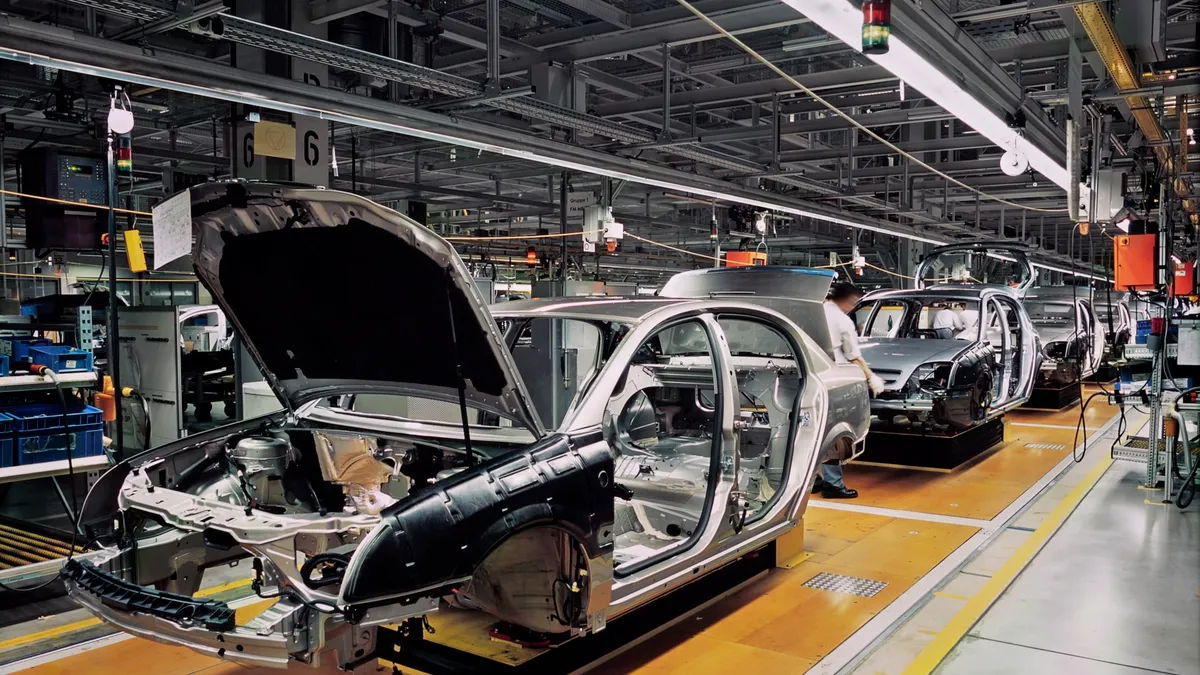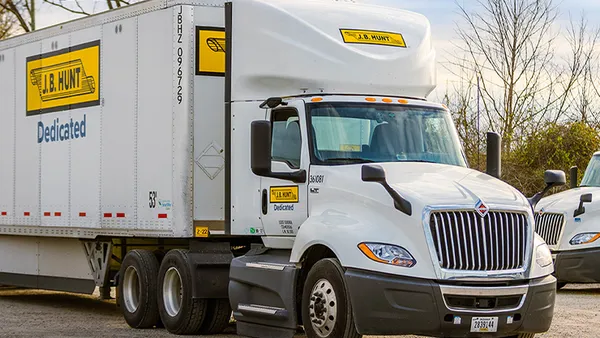Dive Brief:
- U.S. ports enjoy growth thanks to an increase in partly assembled vehicles, known in the trade as "knockdowns," The Wall Street Journal reported.
- Partly assembled cars pay much smaller tariffs than completed models, while enabling manufacturers to gain entry in developing markets.
- The Trump administration’s decision to impose tariffs on steel and aluminum could trigger reactions from European automakers.
Dive Insight:
Knockdown kits are changing the U.S. automobile export market. Even though U.S. auto exports are growing, knockdowns are outpacing them at many ports.
The Savannah and Brunswick, Georgia, ports, for example, have seen auto exports rise 12% in the current fiscal year, while partly assembled cars — which are completed in the destination country — have risen 56%.
While the ports appreciate the business, they also have to make a logistics change, because fully assembled cars can be driven directly onto specialized car carrier ships, but the partially assembled cars are packed into containers and loaded like other cargo.
Knockdown kits are seen by many analysts as an entry point into emerging markets with an undeveloped auto industry. Setting up final assembly operations is one way to gain a foothold in new markets, which helps develop the supplier base and build out manufacturing in those countries, Kristin Dziczek of the Center for Automotive Research, told the Journal.
The growth also might be an indication that manufacturers are altering their factory and overseas distribution strategies to adjust to growing threats of a tariff war. Knockdowns are considered auto parts and are often subject to lower tariffs than full cars. China recently said it would lower its tariff rate on auto imports from 25% to 15%, while lowering the auto-parts rate to just 6%.
It’s also worth watching how non-U.S. automakers react, especially in the face of the Trump administration’s Thursday announcement of tariffs on steel (25%) and aluminum (10%) from Canada, Mexico and the European Union, as well as hints of tariffs on imported vehicles. Japanese and German automakers, for example, have invested billions of dollars in U.S. factories. BMW AG and Mercedes-Benz both have large plants in the southern United States, and both export large volumes of vehicles from the U.S.













